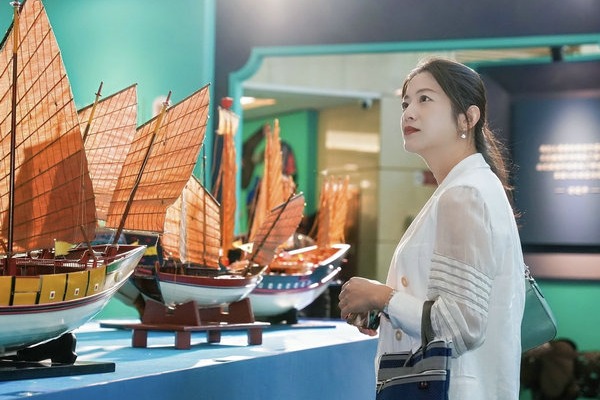Craftsman keeps alive art of romancing the stone


In addition to continuously digging into bits of history about specific crafting steps, he made a point of tailoring white marble for domestic use.
White marble has a relatively low hardness, a brittle texture, and is prone to breaking, which had kept it from being carved with fine detail.
"Traditionally, white marble has been used for large sculptures and its artistic value is often seen as the bigger, the more valuable," Liu explains.
However, he has come to appreciate the flexible nature of the white marble as his interaction with the stone increased.
He started to experiment with smaller tools like chisels, hammers, and mallets on white marble and explored the best minimal force to its surface to push for an extreme thickness of just 1 millimeter after trial and error.
In 2012, his persistence paid off when he pulled off an intricately carved chair, about the height of an index finger and weighing around 28 grams. Its exquisite craftsmanship attracted many collectors.
"The chair was made from leftover scraps," Liu says.
Although the raw material was not valuable, the finished piece sold for over 20,000 yuan ($2,812).
Later that year, his white marble comprehensive decorative series managed to integrate firing, dyeing, painting, and inlaying to display a variety of subjects, such as flowers and birds, fish, insects and landscapes. The series then won him a national invention patent.
"It was an inspiration from my hometown Ji'an in Jiangxi province, which boasts a profound porcelain culture," he says.
Liu's early moves proved right on track as the authorities shut down mining in Fangshan district to protect the environment and natural resources in 2017.
"White marble is becoming precious now, mostly used for restoration of cultural heritages," Liu says. "But for it to carry on, we must broaden its cultural connotations and extend its application."





































